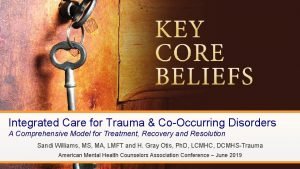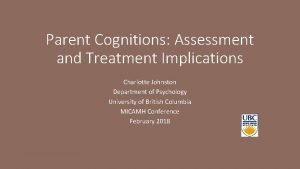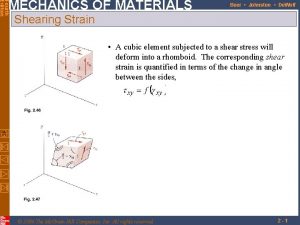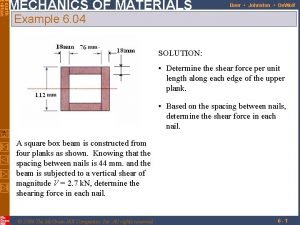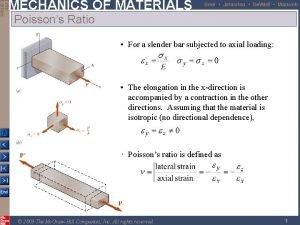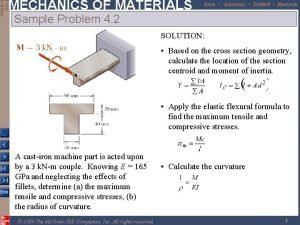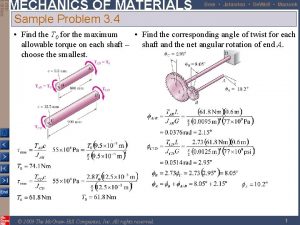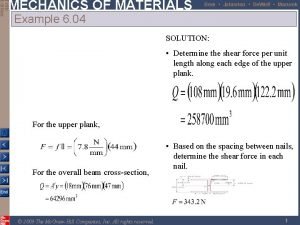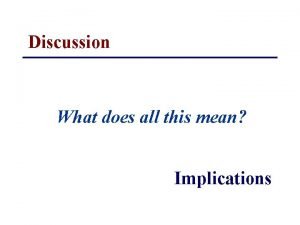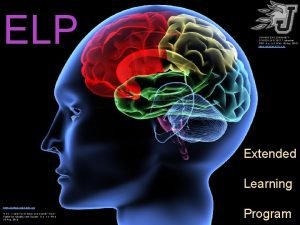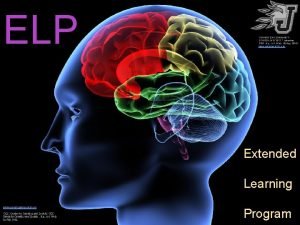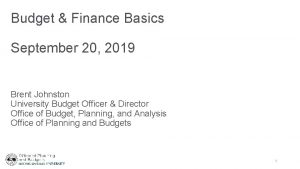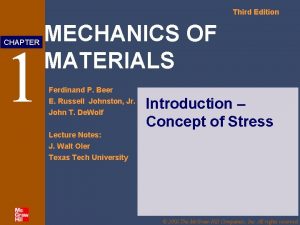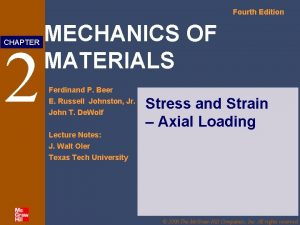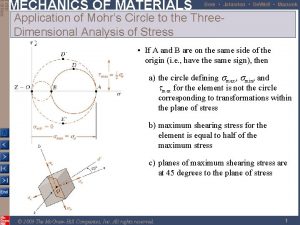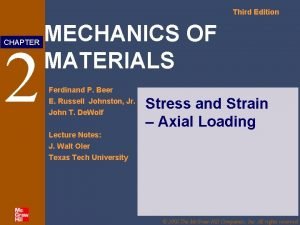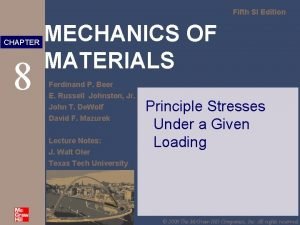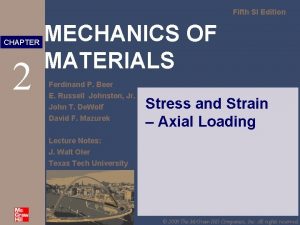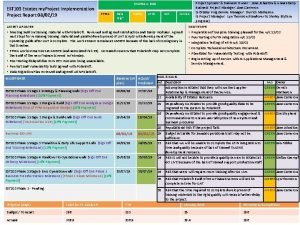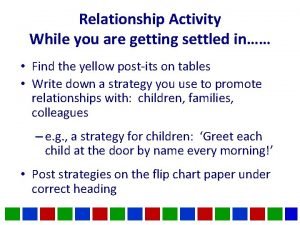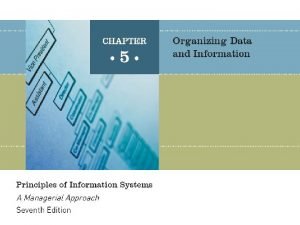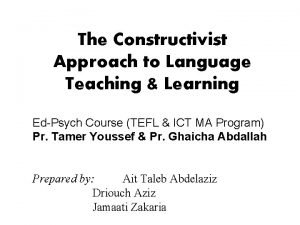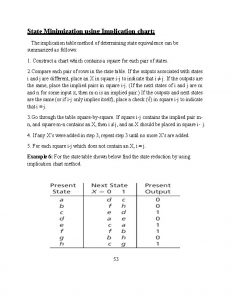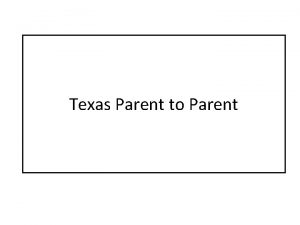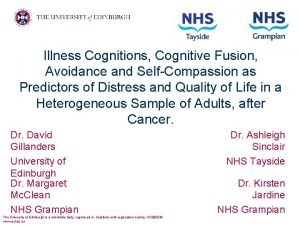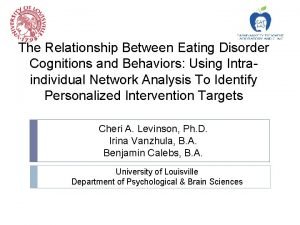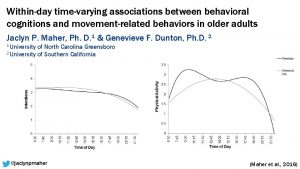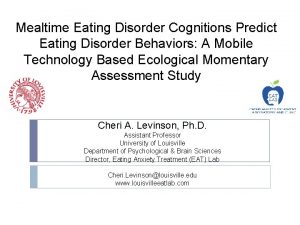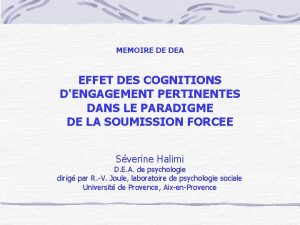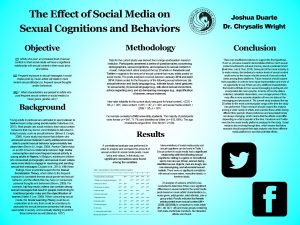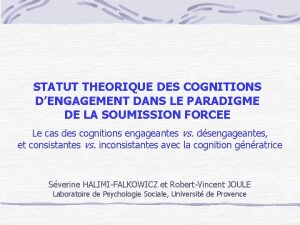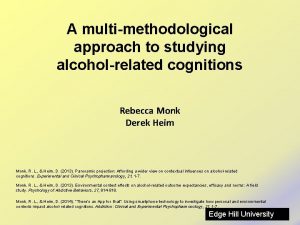Parent Cognitions Assessment and Treatment Implications Charlotte Johnston





















































- Slides: 53

Parent Cognitions: Assessment and Treatment Implications Charlotte Johnston Department of Psychology University of British Columbia MICAMH Conference February 2018

Thanks to: • Parenting lab students & assistants • Collaborators • Funding sources

• No disclosures or conflicts of interest

Overview • Role of parent cognitions • Four types of cognitions • Description and Implications for Assessment and Treatment • • Perceptions of child behavior Expectations/beliefs/attitudes Attributions for child behavior Parenting self-efficacy • Summary

• http: //parentinglab. psych. ubc. ca/resources/

Parent Cognitions • Thoughts you have heard from parents? • Where do these thoughts come from? • How do they influence parenting or child behavior? • How do the thoughts impact how parents respond to treatment?

Role of Parent Cognitions • Thoughts about children, child behaviors, and the parenting role • Lots of different labels and terms • Parent cognitions are linked to parent behavior • Parent behavior is most proximal to child behavior/outcomes • Addressing parent cognitions to understand problems and maximize adaptive parenting behavior

Role of Parent Cognitions • Cognitions within the context of extra-familial and other intraparental factors • Dynamic interplay between cognitions and other parent characteristics and child behavior


Role of Parent Cognitions • Stable forms of the cognitions – e. g. , beliefs, attitudes, schemas • Longer standing, based in family of origin/culture, occur more automatically • Dynamic forms of the cognitions – e. g. , attributions, evaluation • Event-related, require more effortful thought

Role of Parent Cognitions Parent Attitude Family, Culture Interaction with coparent Revised Attitude Change in Parent Behavior Experience with child Continued Revision Of Attitude Time

Role of Parent Cognitions • Backdrop for child and parent problems • Potential causes of child/parent problems • Influences on parent involvement in treatment • Potential to maintain treatment gains

Role of Parent Cognitions (an aside) • Usually we assess “explicit” cognitions • Thoughts at a conscious level, under effortful control • What parents can report – are aware of, are willing to disclose, etc. • Recent research suggests that “implicit” cognitions may also be important • Thoughts that parents are less aware of, that occur more automatically, etc. • Less subject to “correction” • Use measures such as Implicit Associations Test, Cognitive Load

Overview • Role of parent cognitions • Four types of cognitions • Description and Implications for Assessment and Treatment • Perceptions of child behavior • Expectations/beliefs/attitudes • Attributions for child behavior • Parenting self-efficacy • Summary

Parent Perceptions of Child Behavior • Parent reports of the child’s behavior • Cornerstone of child treatment • Interviews, questionnaires • Often the best method of assessing child behavior • But, remember these are perceptions vs. objective child behavior

Parent Perceptions of Child Behavior • Based on child behavior • But – also influenced by • family characteristics - e. g. , culture • parent characteristics - e. g. , depression • circumstances - e. g. , stress

Parent Perceptions of Child Behavior 25 20 15 Higher Depression Lower Depression 10 5 0 Major Life Stress Minor Life Stress No Stress

Parent Perceptions of Child Behavior • Also influenced by the questions we ask • Interviews and questionnaires • Questions are often vague • No time or situational specifiers • Nonspecific descriptions • No instructions regarding comparison group or meaning of anchors • Can we offer better instructions in eliciting parent reports?

Parent Perceptions of Child Behavior • Developed instructions for rating ADHD symptoms in children • Gave examples of the symptoms • Gave comparsion group and situational constraints • Gave examples of what not to rate

http: //parentinglab. psych. ubc. ca/resources/instructions-for-rating-adhd/

Effects of Instructions on Mothers’ Ratings of Child ADHD Symptoms Mother-Teacher Correlation Mother-Observer Correlation No Instructions Inattention . 29 -. 04 Hyperactive-Impulsive . 17 -. 03

Effects of Instructions on Mothers’ Ratings of Child ADHD Symptoms Mother-Teacher Correlation Mother-Observer Correlation Instructions. 44* . 03 . 49** . 46** Inattention . 29 -. 04 Hyperactive-Impulsive . 17 -. 03 Inattention Hyperactive-Impulsive No Instructions

Parent Perceptions of Child Behavior • Recommendations for Assessment/Treatment • Consider factors other than child behavior that may be influencing parent perceptions • Value of multi-informant approach • Offer clear instructions and examples when asking about child behavior • Help parents tie perceptions to specific behaviors, rather than general impressions • Strategies such as monitoring and charts

Overview • Role of parent cognitions • Four types of cognitions • Description and Implications for Assessment and Treatment • Perceptions of child behavior • Expectations/beliefs/attitudes • Attributions for child behavior • Parenting self-efficacy • Summary

Parent Expectations, Beliefs, and Attitudes • More stable thoughts about how children and parents should behave • Typically based in family of origin or cultural contexts • Lots of research measures, but none with norms and psychometrics that would support clinical use • Important to remain aware of the influence of these cognitions on parenting behavior and child outcomes

Parent Expectations • Parent expectations predict child outcomes • Prenatal expectations predict toddler temperament • Academic achievement expectations predict child performance, even controlling with initial child achievement level • Match of expectations to child abilities is most important • Unrealistic expectations associated with maladaptive parenting and poorer child outcomes • Role for education about developmentally appropriate expectations

Parent Beliefs and Attitudes • Beliefs and Attitudes About the Child • Research showing importance of: • Acceptance of negative child emotions • linked to parenting sensitivity and child emotion regulation skills • linked to over protective parenting and worse child anxiety

Parent Beliefs and Attitudes • Beliefs and Attitudes About Parenting (Parenting Style)

Parent Beliefs and Attitudes • Parent-oriented/traditional attitudes (authoritarian) • The most important thing to teach children is absolute obedience to whoever is in authority. • Children must be carefully trained early in life or their natural impulses will make them unmanageable. • Children will be bad unless they are taught what is right. • Child-oriented/progressive attitudes (authoritative) • Children have a right to their own point of view and should be allowed to express it. • It’s all right for a child to disagree with his/her parents. • Parents should go along with the game when their child is pretending something.

Parent Beliefs and Attitudes • Assessment Implications • Ask and listen for these beliefs • Ask about cultural/religious context of the family • Think about inter-parent differences in these cognitions • Treatment Implications • • Promote consideration of pros and cons of attitudes/beliefs Promote consideration of challenges of acculturation for the child Encourage inter-parent or inter-generational discussions Consider use of appropriate cultural resources or parenting mentors

Overview • Role of parent cognitions • Four types of cognitions • Description and Implications for Assessment and Treatment • Perceptions of child behavior • Expectations/beliefs/attitudes • Attributions for child behavior • Parenting self-efficacy • Summary

Parent Attributions for Child Behavior s n o i t u b i r t t A Why did he do that? Parent Behavior Child Behavior

Parent Attributions for Child Behavior • Parents of children with disruptive behavior more likely to blame children for misbehaviour • These child-blaming attributions lead to more negative parenting and more child problems

Child-Blaming Attributions 5 4 3. 5 3 2. 5 2 1. 5 1 0. 5 0 Mother of Typical Child Mother of Child with ADHD/ODD

Parent Attributions Child-blaming attributions predict the development of child problems Child Misbehavior Problematic Parenting Child-blaming Attributions Time 1 Increase in Child Misbehavior Time 2

Challenge! • What is the child’s true intention? • Is the behavior partially due to a disorder? • Is the behavior partially due to the situation? • Balance of holding the child responsible vs. blaming the child

Parent Attributions for Child Behavior Your child enters the kitchen just as you have finished sweeping the floor and getting the dust in a pile to pick up. The child doesn’t wait for you to finish and heads straight to the fridge. As he rushes through the kitchen, the pile of dirt scatters across the floor. Is the cause of your child's behavior something about him/her vs something about other people or the situation? Is the cause within your child’s control? Is the reason something that happens in many situations or is it specific to this situation? Is the reason a one time thing or likely to happen again in the future? Was your child responsible for the behavior?

Parent Attributions for Child Behavior Your child is going through the hall closet looking for his baseball mitt and ball. When he can’t find them, he runs to where you are busy talking on the telephone. He keeps tapping you on the back and interrupting to ask you to help him find the mitt.

Parent Attributions for Child Behavior When you walk into the house after shopping for groceries, you see that your child’s shoes and school books are lying in the middle of the hallway. You go to the family room and tell your child to come and pick up her belongings. She does not do it.

Parent Attributions for Child Behavior You and your child decide to play a board game on the weekend. You get the game down from the shelf and your child set up the pieces on the game board and decide which color each of you would like to be. Your child offers to let you roll the dice first.

Parent Attributions for Child Behavior Parent Cognition Scale Snarr, J. D. , Slep, A. M. S. , & Grande, V. P. (2009). Validation of a new self-report measure or parental attributions. Psychological Assessment, 21, 390 -401. Child-Responsible Attributions - My child won’t listen - My child thinks that he/she is the boss Parent-Causal Attributions - I’m not structured enough with my child - I don’t give my child enough attention

Parent Attributions for Child Behavior • Assessment and Treatment Recommendations • Ask about the parents’ attributions – “why” questions • When parents blame the child - encourage consideration of other possible reasons • When parents don’t give child credit for positive behaviors – encourage child-centered attributions • Reframe behaviors as meeting child developmental vs. dispositional needs

Overview • Role of parent cognitions • Four types of cognitions • Description and Implications for Assessment and Treatment • Perceptions of child behavior • Expectations/beliefs/attitudes • Attributions for child behavior • Parenting self-efficacy • Summary

Parenting Self-Efficacy f l e S g n i t n Pare Efficacy: e g a n a m I n a C my child? Parent Behavior Child Behavior

Parenting Self-Efficacy • When faced with child misbehavior, if parents feel they can • Manage • Change • Cope • They parent more effectively

0. 6 0. 4 0. 2 0 ADHD -0. 2 Typical -0. 4 -0. 6 -0. 8 Younger Child Age Older Parenting Self-Efficacy Parenting self-efficacy related to child ADHD

Parenting Self. Efficacy . 30 View of Strategy . 53 Strategy Use Parenting Self-Efficacy Parenting self-efficacy predicts mothers’ use of effective behavioral strategies?

Parenting Self-Efficacy • Linked to parenting behavior and child problems • Predicts more engagement in parenting training programs • Predicts better outcomes from parent training programs • Post-treatment parenting self-efficacy predicts maintenance of treatment gains

Parenting Self-Efficacy Parenting Sense of Competence Scale (Johnston & Mash) • Efficacy Subscale • If anyone can find the answer to what is troubling my child, I am the one. • Being a parent is manageable, and any problems are easily solved. • Satisfaction Subscale • Even though being a parent could be rewarding, I am frustrated now while my child is at his/her present age. • A difficult problem in being a parent is not knowing whether you’re doing a good job or a bad one.

Parenting Self-Efficacy Treatment Recommendations - Help parents to seek support from others - Help parents to set small, reasonable parenting goals - Help parents frame improvements in child behavior as due to parenting changes - Encourage parents to remember the positive parenting things they do

What would you do if? A mother has been learning about using praise and is describing her young daughter’s behavior over the past week. She says “She did a better job of picking up her toys this week. I think she might finally be growing up. ” A father comments to you that his son is always well behaved in the clinic with you and he feels this is just further evidence of the fact that he is not cut out to be a parent.

Overview • Role of parent cognitions • Four types of cognitions • Description and Implications for Assessment and Treatment • • Perceptions of child behavior Expectations/beliefs/attitudes Attributions for child behavior Parenting sense of competence • Summary

Take Home Messages • Keep treatment focus on parenting behavior, but remember that what parents are thinking is important • Use assessment strategies that improve the accuracy of parent perceptions of child behaviors • Consider the role of parent expectations, attitudes, and beliefs • Try to reduce child-blaming attributions • Try to increase parents’ sense of their own parenting efficacy
 Emdr negative cognitions
Emdr negative cognitions Emdr negative cognitions
Emdr negative cognitions Charlotte johnston
Charlotte johnston Co parent coaching charlotte
Co parent coaching charlotte Assessment and treatment alternatives
Assessment and treatment alternatives Ashley howe analysis inference
Ashley howe analysis inference Mechanics of material beer
Mechanics of material beer Beer mechanics of materials
Beer mechanics of materials Beer and johnston
Beer and johnston Beer johnston
Beer johnston Beer and johnston
Beer and johnston Mechanics of materials 6th edition solutions chapter 9
Mechanics of materials 6th edition solutions chapter 9 Beer johnston
Beer johnston Discussion and implications
Discussion and implications Pams assessment knowledge cartoons
Pams assessment knowledge cartoons Agueda johnston middle school guam
Agueda johnston middle school guam Carolyn johnston md
Carolyn johnston md Johnston community schools
Johnston community schools Johnston csd
Johnston csd Brent johnston msu
Brent johnston msu Mechanics of materials
Mechanics of materials Meredith martin johnston
Meredith martin johnston Brockels chocolates
Brockels chocolates Beer johnston
Beer johnston Mechanics of materials
Mechanics of materials Mechanics of materials chapter 3 solutions
Mechanics of materials chapter 3 solutions Ferdinand beer
Ferdinand beer Beer johnston
Beer johnston Mechanics of materials 6th edition solutions chapter 5
Mechanics of materials 6th edition solutions chapter 5 Mechanics of materials chapter 4
Mechanics of materials chapter 4 Mechanics
Mechanics Ferdinand beer
Ferdinand beer Beer johnston
Beer johnston Material of mechanics
Material of mechanics Mechanics of materials chapter 10
Mechanics of materials chapter 10 Mechanics
Mechanics Beer johnston
Beer johnston Mechanic of materials
Mechanic of materials Beer johnston
Beer johnston Mechanic of materials
Mechanic of materials Leslie johnston
Leslie johnston Philip johnston
Philip johnston Karen johnston uva
Karen johnston uva Beer johnston
Beer johnston Anna johnston business
Anna johnston business Jill johnston usc
Jill johnston usc Johnston beam
Johnston beam Cabarrus county schools timekeeper
Cabarrus county schools timekeeper Alexis johnston
Alexis johnston Mechanics
Mechanics Johnston zizek
Johnston zizek Characteristics of database approach
Characteristics of database approach Constructive tools examples
Constructive tools examples Implication chart
Implication chart

